How to Freeze Fruit and Vegetables
on Jun 26, 2021, Updated Jul 05, 2024
This post may contain affiliate links. Please read our disclosure policy.
Learning how to freeze fruits and vegetables is such a great skill to have! If you have a small garden or a large one, freezing the harvest while it’s in season is the a great way to have seasonal fruits and vegetables during the off season. Here’s a full guide to help you along your way.
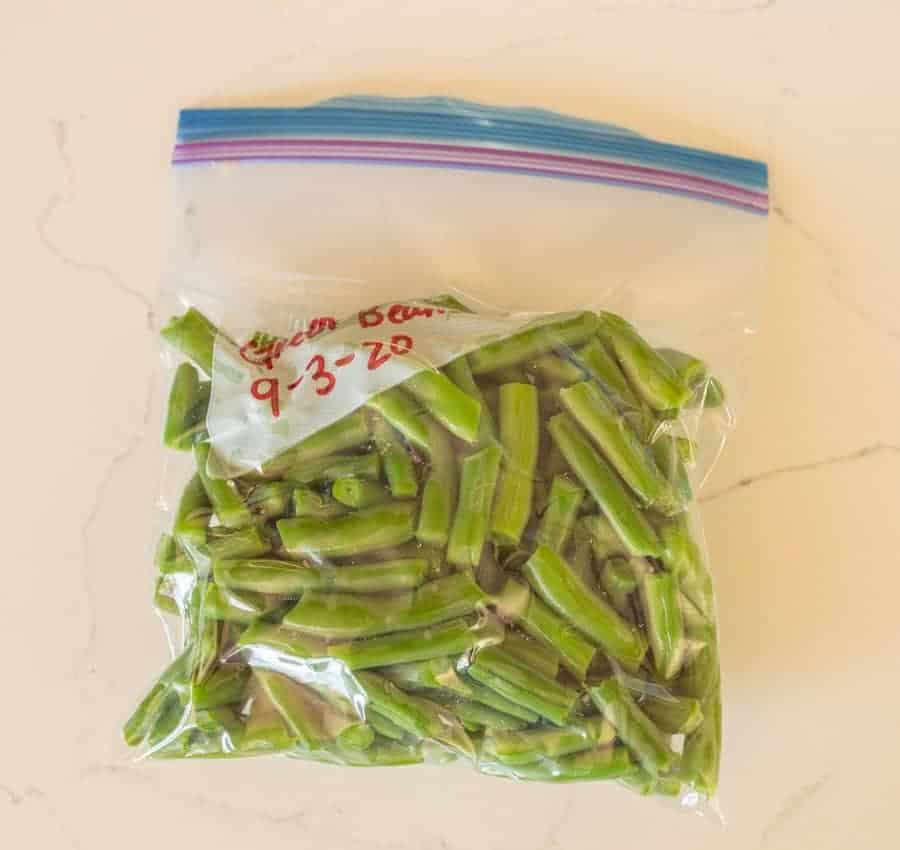
I love canning, I love dehydrating, but what I find myself doing the most often is freezing! Freezing is a favorite long term storage solution for seasonal fruits and vegetables. It’s easy to do, you don’t need a lot of supplies, and one of my favorite parts is that you can freeze small or large batches! This method is definitely the easiest, most convenient, and least time consuming method of preserving foods.
You don’t need gallons and gallons of tomatoes to freeze like you might to do a batch of canning, you can put in one bag of fruits or vegetables at a time in the freezer. Before you know it, you’ll have a freezer full of amazing fruits and vegetables to use all winter long.
Table of Contents
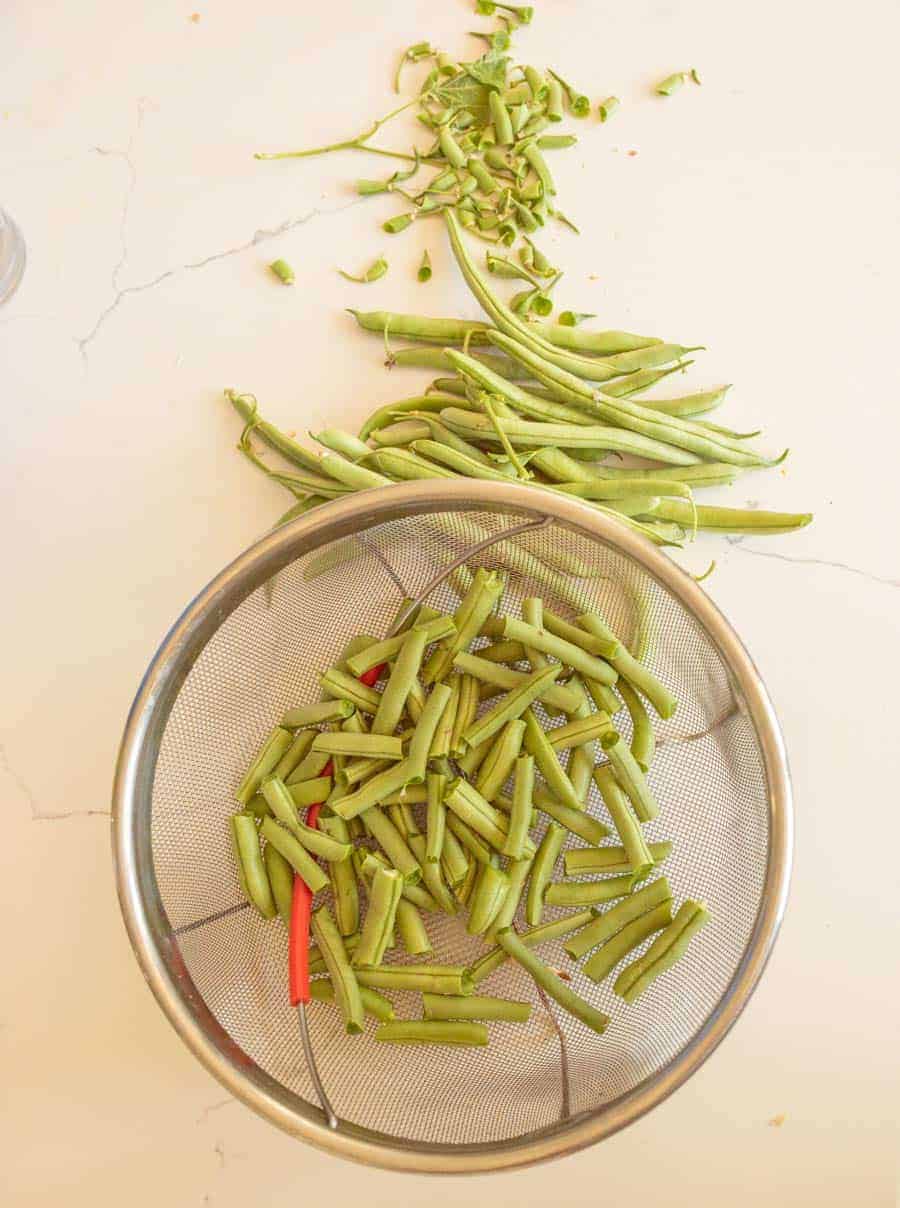
Why You’ll Love This Recipe
- Reduce Waste: Freezing fruits and vegetables helps you preserve fresh produce that might otherwise go to waste in your fridge or on your counter.
- Cost-Effective: Buying or growing fruits and vegetables in bulk when they’re in season and freezing them can give you a freezer full of low-cost produce.
- Convenience: Having a stock of frozen fruits and vegetables means you always have healthy options on hand, even when they’re out of season.
Supplies
- Freezer
- Marker or something to label food
- Packaging (such as: rigid containers such as plastic or glass, flexible freezer bags, vacuum packing)
- Fruits or vegetables
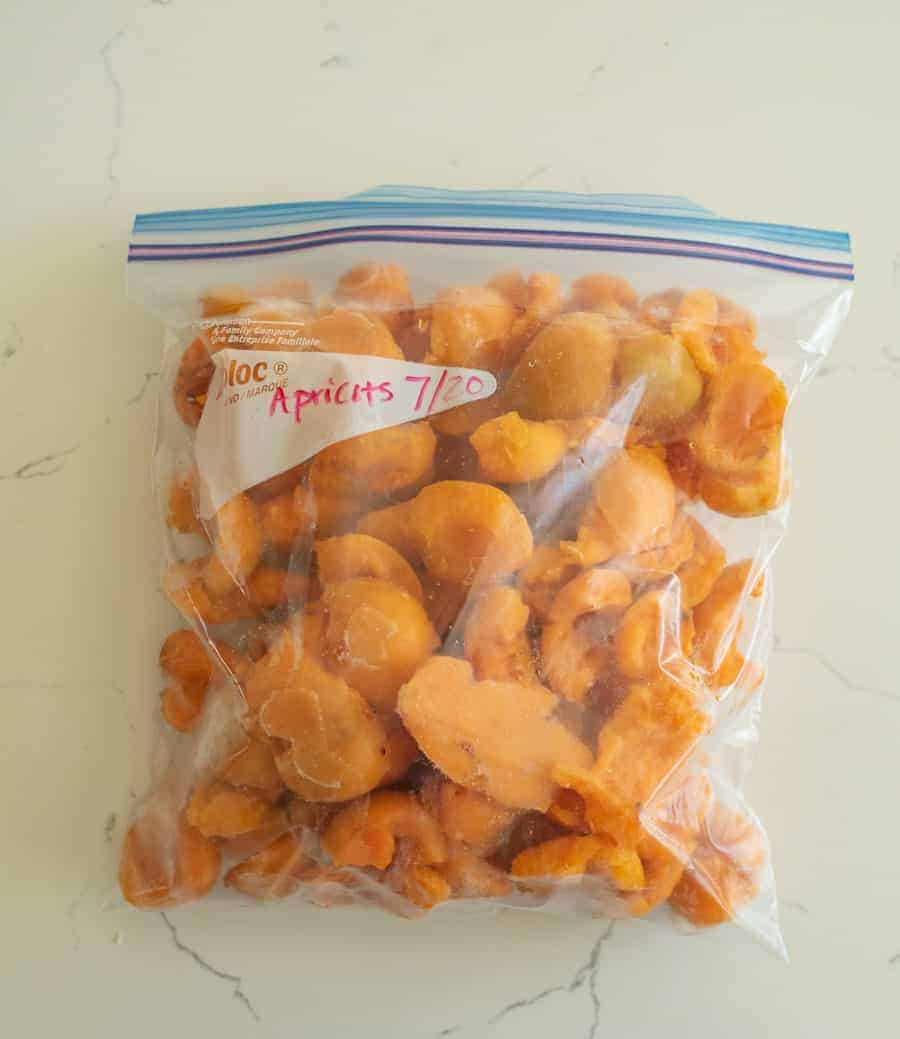
This provides a supply of a variety of foods when those fresh products are not readily available. When properly done, freezing can preserve most of the quality of the fresh product. This method is also easier than other preserving options (such as canning) and it tends to be more accessible to more people.
Cabbage
Celery
Cress
Cucumbers
Endive
Irish Potatoes
Lettuce
Parsley (unless doing it in oil, see here)
Radishes
How long are things good for in the freezer?
| Product | Storage Period |
| Bacon | 1 month |
| Butter | 6-9 months |
| Chops | 4-6 months |
| Egg whites or yolks | 12 months |
| Fish, fatty | 2-3 months |
| Fish, lean | 4-8 months |
| Fruits | 8-12 months |
| Ground or Stew Meat | 3-4 months |
| Ham | 1-2 months |
| Milk | 1-3 months |
| Poultry, Cooked | 1 month |
| Poultry, Uncooked | 12 months |
| Roasts | 4-12 months |
| Steaks | 6-12 months |
| Vegetables | 8-12 months |
| Yogurt | 1-2 months |
Freezing can cause a change in texture and color, moisture loss, and nutrient loss.
How does this method work? Freezing does not sterilize foods. It reduces the temperature of the food so that microorganisms cannot grown; however, many will survive. Enzyme activity is also slowed down.
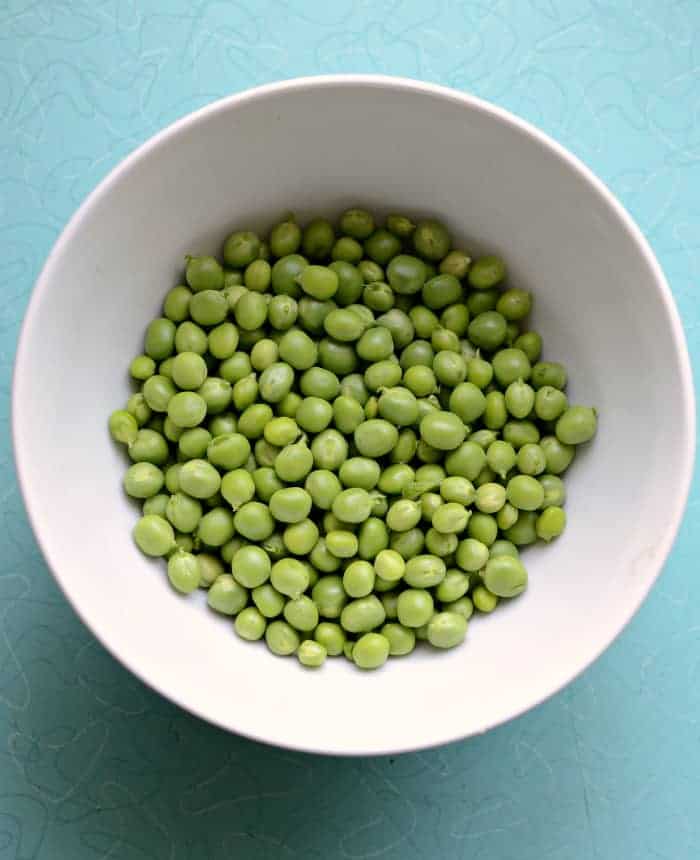
Factors to Consider When Freezing
- Relatively high energy cost
- Medium preparation time
- Short processing time
- Closest to nutrient value of fresh product
| Raw Product FRUIT | Approximate Pounds needed for 1 Quart Jar or Container |
| Apples | 2 ½- 3 |
| Apricots | 2- 2 1/2 |
| Berries (except Strawberries and cranberries) | 1 ½- 3 |
| Cantaloupes | 1 large melon |
| Cherries | 2- 2 ½ |
| Cranberries | 1 |
| Figs | 2- 2 ½ |
| Grapes | 4 |
| Grapefruit | 4- 6 fruits |
| Nectarines | 2- 3 |
| Peaches | 2- 2 ½ |
| Pears | 2- 2 ½ |
| Pineapples | 2 ½ |
| Plums | 2- 2 ½ |
| Rhubarbs | 2 |
| Strawberries | 6- 8 cups |
| Tomatoes | 2 ½ – 3 ½ |
| Raw Product VEGETABLES | Approximate Pounds Needed for 1 Quart Jar or Container |
| Asparagus | 2-3 |
| Beans, Lima | 4-5 |
| Beans, Green or Wax | 1 ½ -2 |
| Beets | 2 ½-3 |
| Broccoli | 2-3 |
| Brussels Sprouts | 2 |
| Cabbage | 2 ½ -3 |
| Carrots | 2 ½ -3 |
| Cauliflower | 2 medium heads |
| Corn, Sweet | 4-5 |
| Eggplant | 2 |
| Greens | 2-3 |
| Okra | 1 ½ |
| Peas, Field Green | 3 ½ -4 |
| Peppers | 1 1/3 |
| Pumpkin | 1 ½ -3 |
| Spinach | 2-6 |
| Squash, Summer | 2-2 1/2 |
| Squash, Winter | 3 |
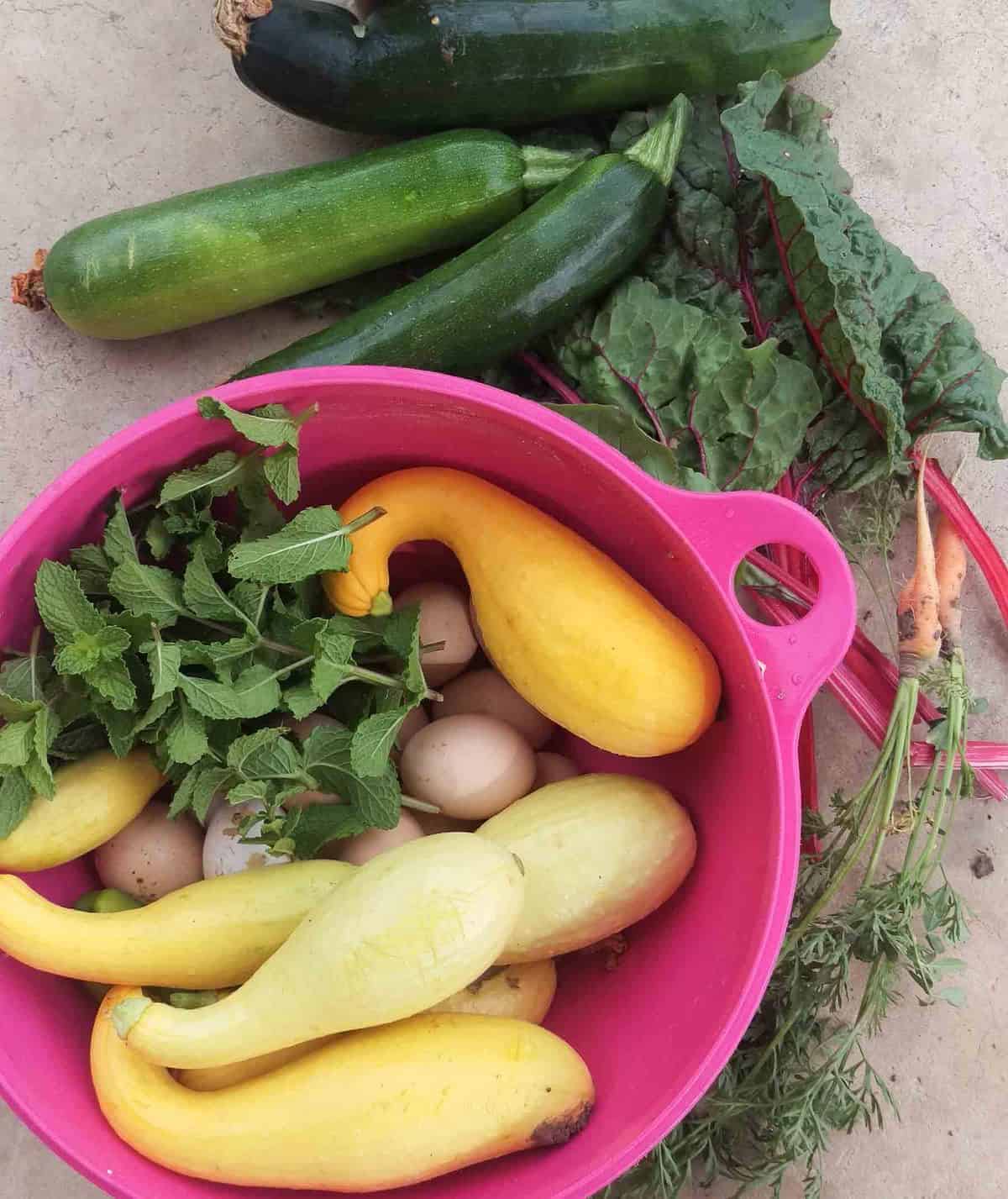
Expert Tips
- Cool cooked and blanched foods
- Package in appropriate freezer materials
- Remove as much air from containers as you can
- Most vegetables need to be blanched before freezing to help prevent loss of flavor, color, texture, and vitamins.
- Some fruits such as peaches, apples, pears, and apricots darken when exposed to air. They need to be placed in a solution to prevent discoloration. These may include ascorbic acid mixtures, citric acid, lemon juice, and steaming (if you’re going to cook the food before eating)
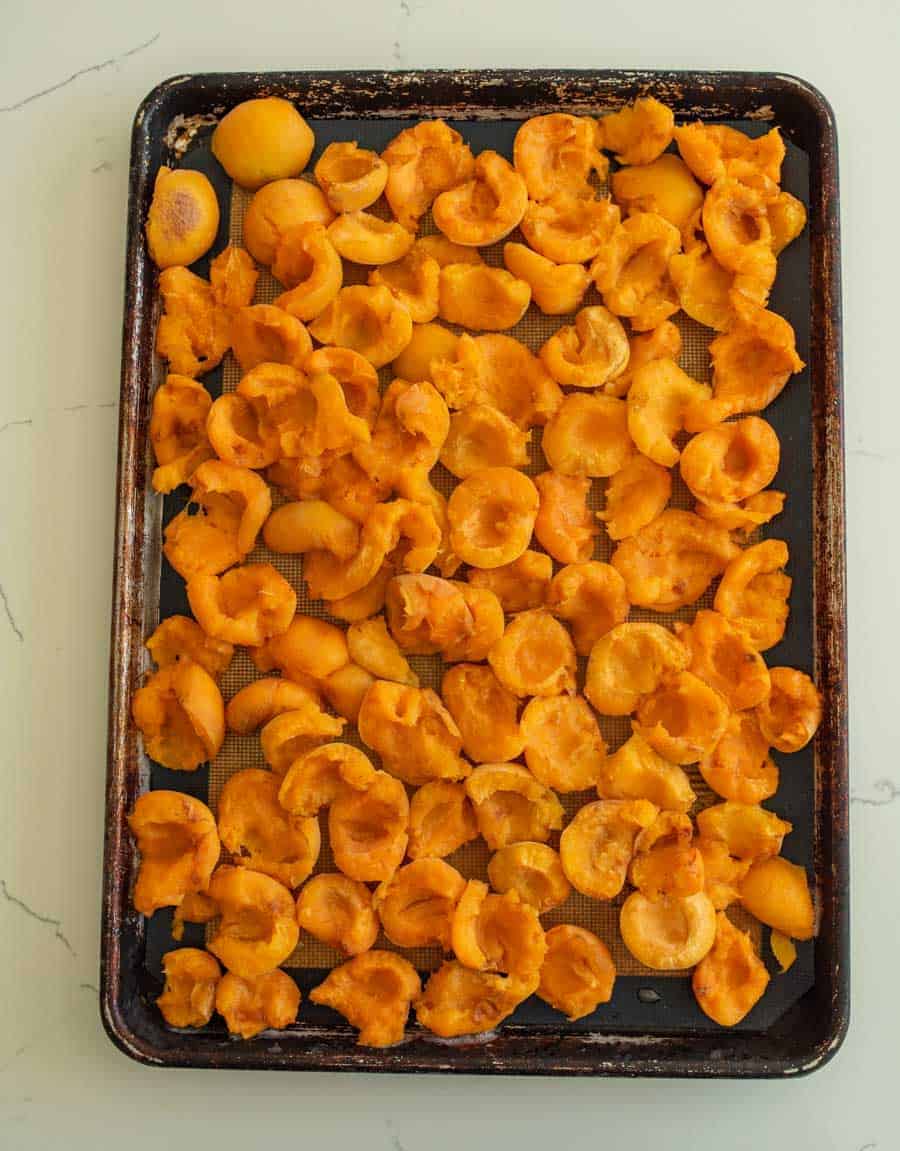
More Preserving Recipes to Consider
Preserving Guide
How To Preserve Apricots
Preserving Guide
How To Preserve Apples
Canning Recipes
How to Can Food: Learn the Basics
Freezing Foods
How to Blanch Green Beans
Did you make this recipe? Leave a ⭐️ review and share it on Instagram, Facebook, or Pinterest!

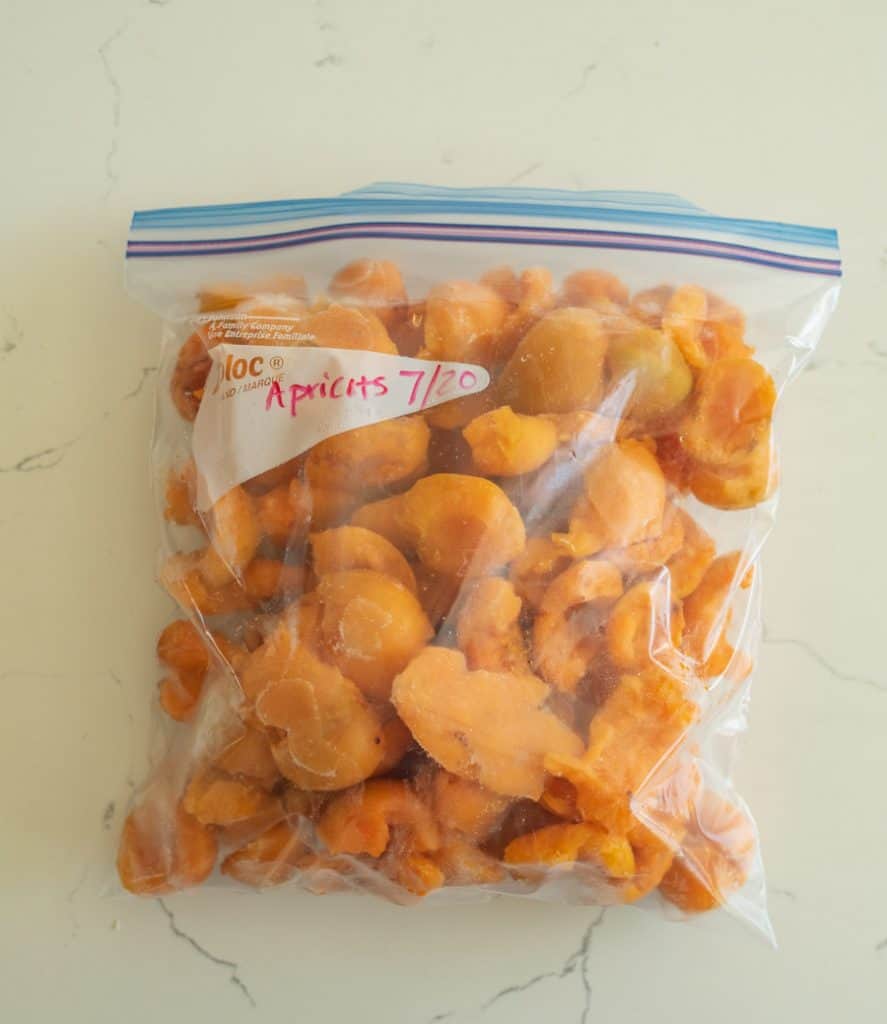
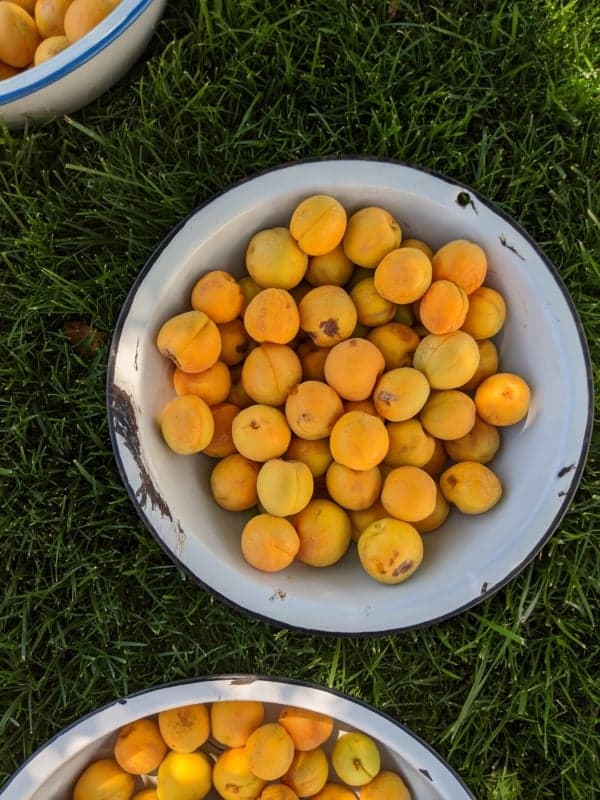
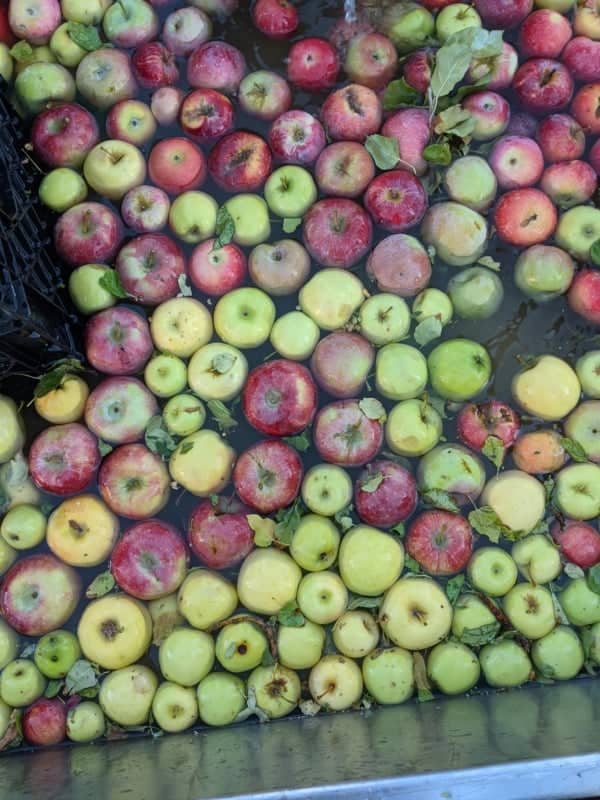
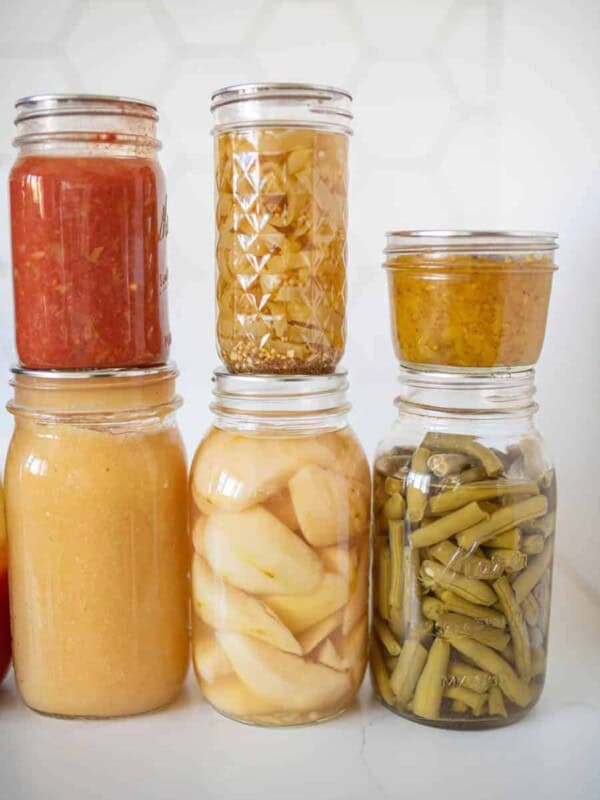
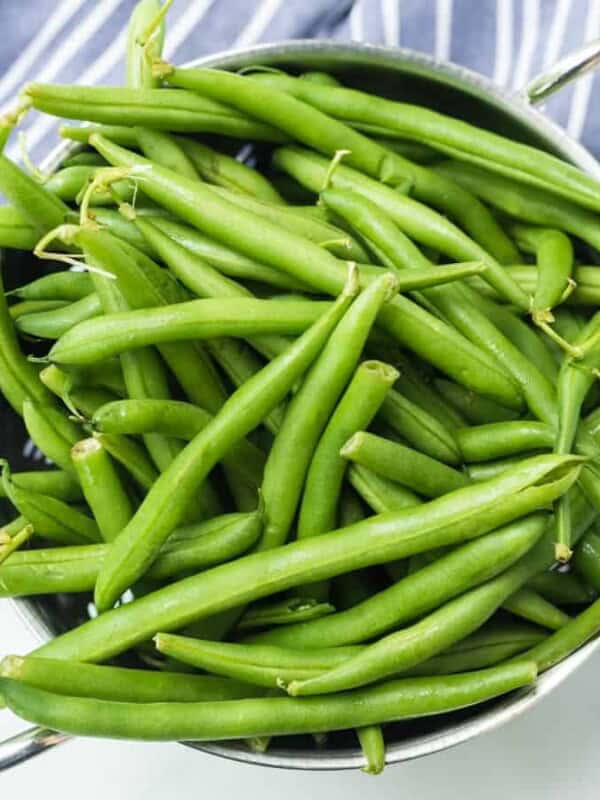






Ahhhhh…..the how to freeze bananas post…..the one google found for me which hooked me on your blog…..it makes my heart smile seeing it listed!